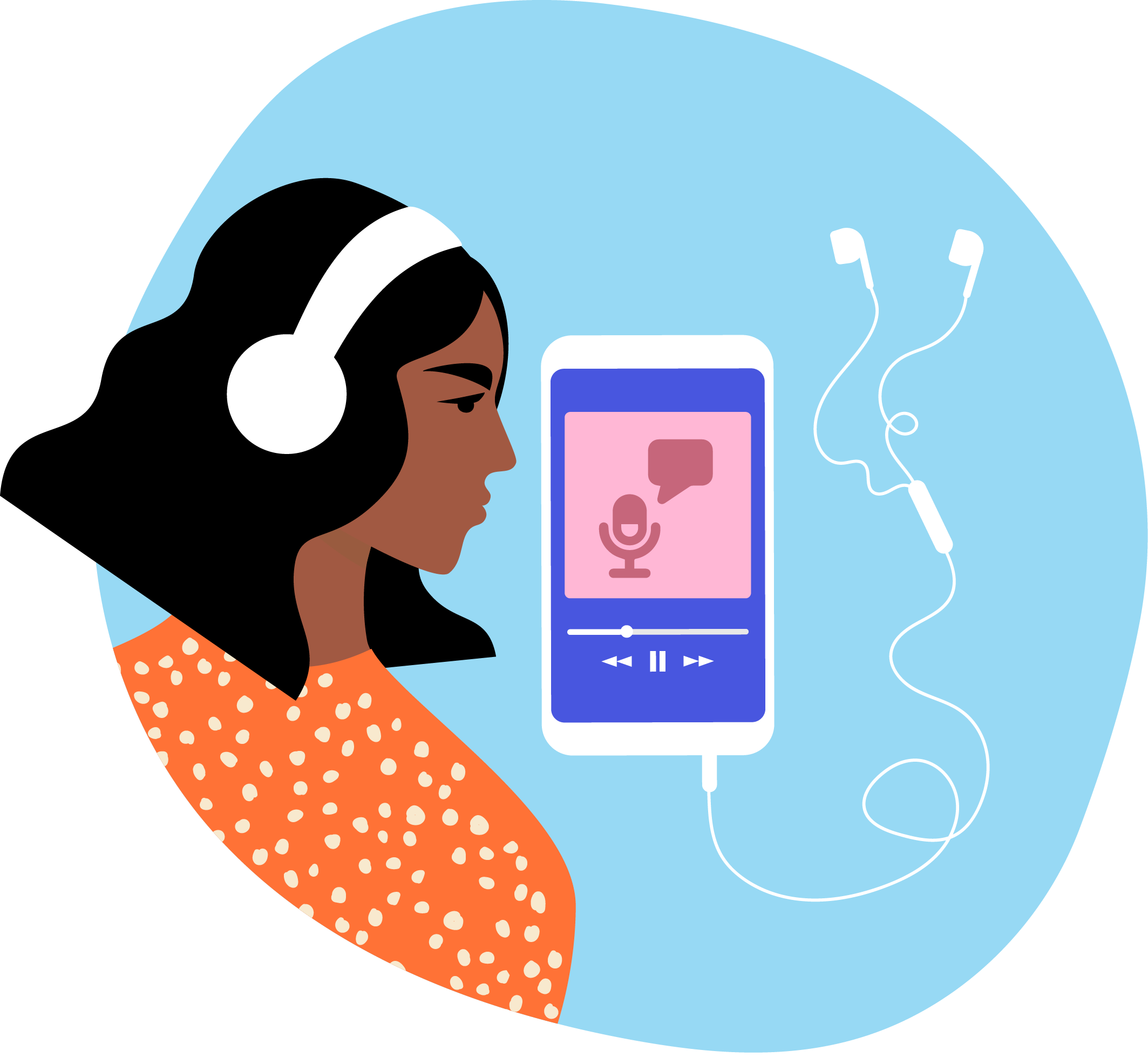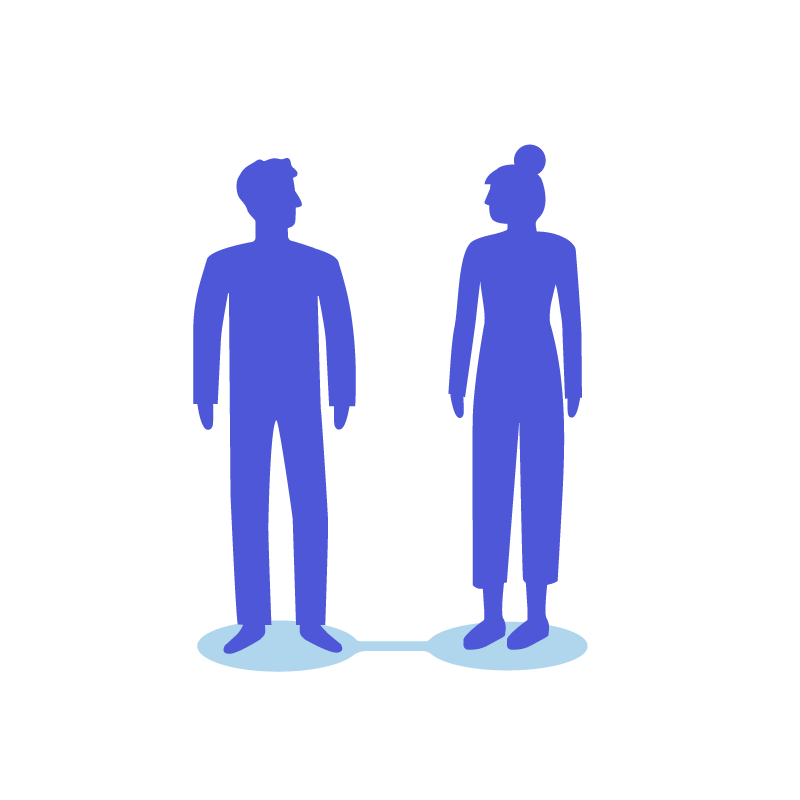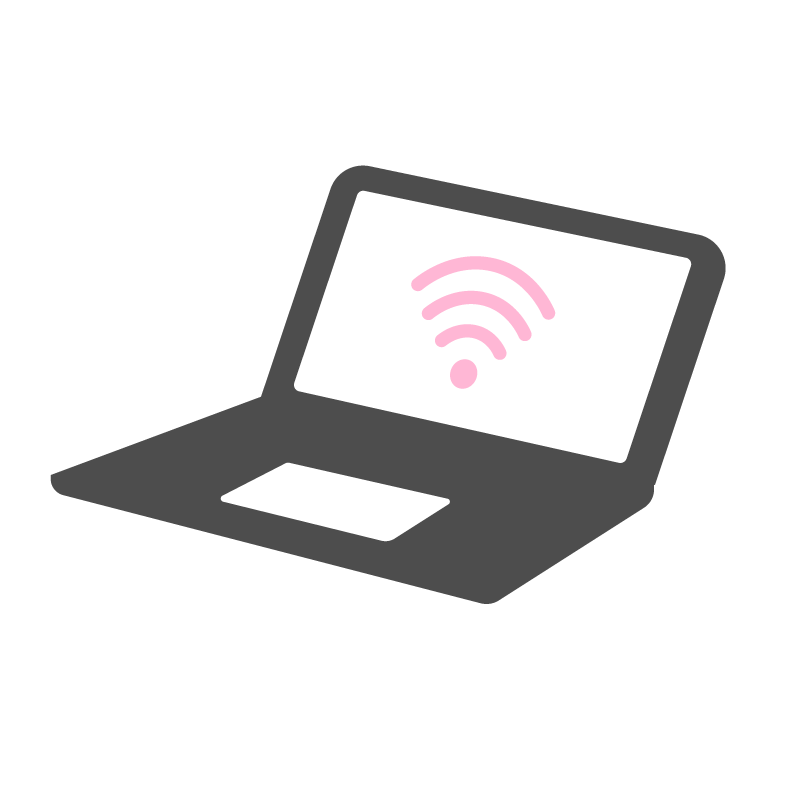Podcast Parlons-en : Droits et Concepts Liés aux Services pour les Femmes et les Filles

Dans cet épisode de podcast, nous allons te parler de quelques concepts clés liés à l'accès aux services d'une manière qui te permet de te sentir à l'aise ! Souviens-toi ! Tu es en contrôle des décisions concernant ton corps, les services que tu veux ou ne veux pas, et tout ce qui est lié à ta situation.
00:00:04
Bienvenue dans le podcast «Parlons-en»- sponsorisé par Laaha.
00:00:11
Laaha est une plateforme en ligne ouverte où to
00:00:13
les femmes et les filles, pouvez obtenir des informations
00:00:17
sur votre santé, votre bien-être et votre sécurité.
00:00:20
N'oublie pas : tout le contenu fourni sur la plateforme
00:00:24
est basé sur des connaissances scientifiques
00:00:27
à des fins éducatives uniquement.
00:00:30
Il ne vise pas à remplacer les conseils ou les
00:00:32
traitements professionnels.
00:00:34
Je m'appelle Mariam, et je suis là pour vous
00:00:37
vous parler de quelques concepts clés liés à l'accès
00:00:40
aux services de manière à ce que vous vous sentiez à l'aise.
00:00:43
Si vous avez besoin d'aide et que vous ne savez
00:00:47
pas par où commencer, il existe des services
00:00:49
gouvernementaux et des organisations qui soutiennent
00:00:53
spécifiquement les femmes et les filles.
00:00:55
À travers eux, les femmes et les filles peuvent recevoir
00:00:59
différents services, notamment un soutien émotionnel ou
00:01:02
ou psychologique, des informations juridiques, des services
00:01:06
de santé, et plus encore.
00:01:09
Ces services peuvent être disponibles dans des centres
00:01:12
pour femmes et filles, des établissements de santé,
00:01:15
des écoles ou des organisations communautaires - cela
00:01:19
peut varier d'un endroit à l'autre, mais l'objectif
00:01:22
est de soutenir les femmes et les filles, comme vous !
00:01:25
Passons en revue les principales questions que vous
00:01:28
pourriez avoir sur ces services, en particulier ceux offrant
00:01:33
un soutien émotionnel et psychologique.
00:01:35
Quels types de services sont disponibles pour les
00:01:38
femmes et les filles?
00:01:39
Tout d'abord, ces services peuvent être une source
00:01:43
d'informations, de soutien, de réconfort, et peuvent t'aider
00:01:47
à trouver des orientations et des solutions
00:01:50
pour répondre à tes besoins.
00:01:52
Les services disponibles varieront d'un endroit
00:01:55
à l'autre et en fonction de l'endroit où tu te rends.
00:01:58
Parmi les services qui pourraient être disponibles,
00:02:01
on peut citer : le soutien émotionnel ou psychosocial,
00:02:06
les soins de santé, l'aide juridique et l'hébergement sûr.
00:02:10
Dans certaines régions, tu pourras peut-être obtenir
00:02:14
plusieurs types de services au même endroit,
00:02:17
mais dans de nombreux cas, différents
00:02:19
endroits proposeront différents services.
00:02:21
Si tu as moins de 18 ans, tu peux toujours
00:02:24
accéder à ces services si tu as été victime de violence,
00:02:28
même si tu n'as pas d'adulte de confiance
00:02:30
pour t'accompagner.
00:02:31
Ton prestataire de services travaillera avec toi
00:02:34
pour identifier un adulte de confiance ou
00:02:37
pour accéder aux services nécessaires sans
00:02:39
avoir besoin d'un adulte accompagnateur.
00:02:42
À qui pourrais-tu parler pour obtenir du
00:02:45
soutien ou des informations ?
00:02:47
Si tu te rends auprès d'un prestataire de services ou
00:02:50
d'une organisation qui propose un soutien psychosocial,
00:02:53
un membre du personnel peut être appelé travailleur
00:02:57
social ou gestionnaire de cas; elle t'aidera
00:03:00
à partager des informations en fonction de tes besoins
00:03:03
et de ton choix, et te soutiendra pour décider
00:03:07
de la meilleure marche à suivre.
00:03:08
Il s'agira de quelqu'un qui a été formé pour fournir
00:03:12
des informations et un soutien si tu as été victime
00:03:15
d'abus et que tu souhaites de l'aide.
00:03:17
Si tu te sens plus à l'aise en te rendant dans un centre
00:03:21
de santé ou dans un autre service, comme la police ou
00:03:24
l'école, tu pourrais parler à une médecin, une infirmière,
00:03:28
une sage-femme ou à une autre personne de confiance
00:03:32
avec laquelle tu te sens à l'aise.
00:03:34
À quoi ressemble le fait de travailler avec une
00:03:37
travailleuse sociale ou une gestionnaire de cas ?
00:03:40
Tout d'abord, tu n'as besoin de fournir que les informations
00:03:44
tu partages volontairement.
00:03:48
Deuxièmement, la travailleuse sociale suivra une méthode
00:03:51
structurée pour fournir un soutien aux femmes et aux filles,
00:03:54
y compris à celles qui ont subi de la violence.
00:03:58
Cela s'appelle la gestion de cas.
00:04:00
Dans ce processus, la travailleuse sociale
00:04:03
sera chargée de s'assurer que tu es informée de
00:04:06
de toutes les options disponibles.
00:04:08
Elle t'expliquera les différents services, y compris les
00:04:11
risques éventuels, et te soutiendra pour identifier les
00:04:15
problèmes et trouver des solutions.
00:04:17
La travailleuse sociale ne pourra pas résoudre
00:04:20
tous les problèmes, mais elle travaillera avec toi
00:04:23
pour trouver des moyens de répondre à tes
00:04:25
préoccupations et à tes besoins.
00:04:27
"Qui sera chargé(e) de prendre des
00:04:29
décisions concernant ce que je fais ?"
00:04:31
C'est toi ! Tu es en charge des décisions
00:04:34
concernant ton corps, les services que tu veux ou ne veux
00:04:41
ne veux.Une prestataire de services devrait
00:04:42
te fournir toutes les informations pertinentes afin que
00:04:45
tu puisses donner ton autorisation pour quelque
00:04:47
chose ou convenir d'une marche à suivre.
00:04:50
Cela s'appelle le consentement éclairé.
00:04:53
Si je parle à un prestataire de services,
00:04:56
le diront-ils à quelqu'un?
00:04:58
Les personnes fournissant des services psychosociaux,
00:05:01
de santé et juridiques sont tenues par
00:05:04
un principe éthique appelé la confidentialité.
00:05:07
La confidentialité signifie que les prestataire
00:05:10
de services protègent les informations recueillies sur
00:05:13
sur les femmes et les filles et acceptent de ne partager
00:05:16
des informations sur le cas d'un client
00:05:18
qu'avec leur permission.
00:05:20
Parfois, ils ont besoin de partager des informations
00:05:23
par exemple, si tu as l'intention de te faire du mal
00:05:26
ou de faire du mal à autrui, ou s'il existe des lois
00:05:30
qui les obligent à signaler certains types de violence,
00:05:33
comme la maltraitance des enfants.
00:05:35
L'essentiel est qu'ils doivent expliquer clairement
00:05:38
les obligations en matière de signalement obligatoire
00:05:41
au début de votre discussion et avant que tu aies
00:05:44
donné ton consentement pour poursuivre, afin que tu puisses
00:05:47
décider de la manière dont tu souhaites procéder.
00:05:55
Si tu as d'autres questions ou si tu souhaites parler
00:05:57
à quelqu'un, n'hésite pas à trouver les coordonnées
00:06:00
d'un prestataire de services près de chez toi en
00:06:02
cliquant sur 'Besoin d'aide' ou à chercher d'autres
00:06:05
d'autres articles en utilisant la fonction
00:06:08
de recherche ou le chatbot.







 Podcast Parlons-en : Droits et Concepts Liés aux Services pour les Femmes et les Filles
Podcast Parlons-en : Droits et Concepts Liés aux Services pour les Femmes et les Filles